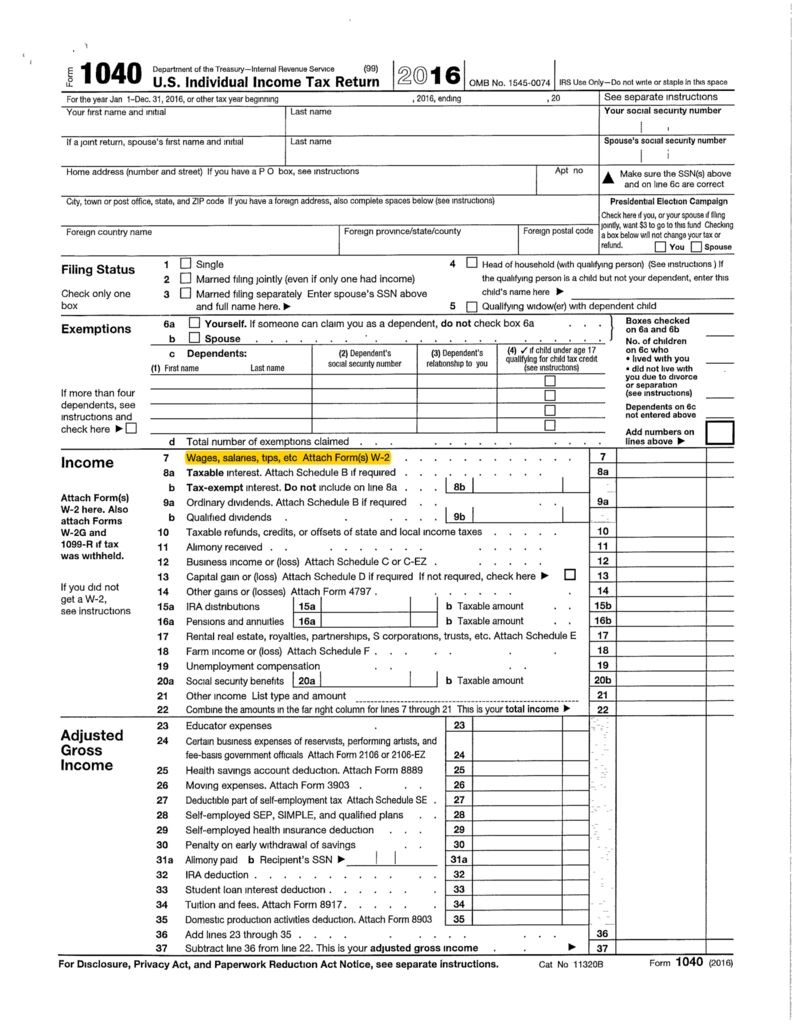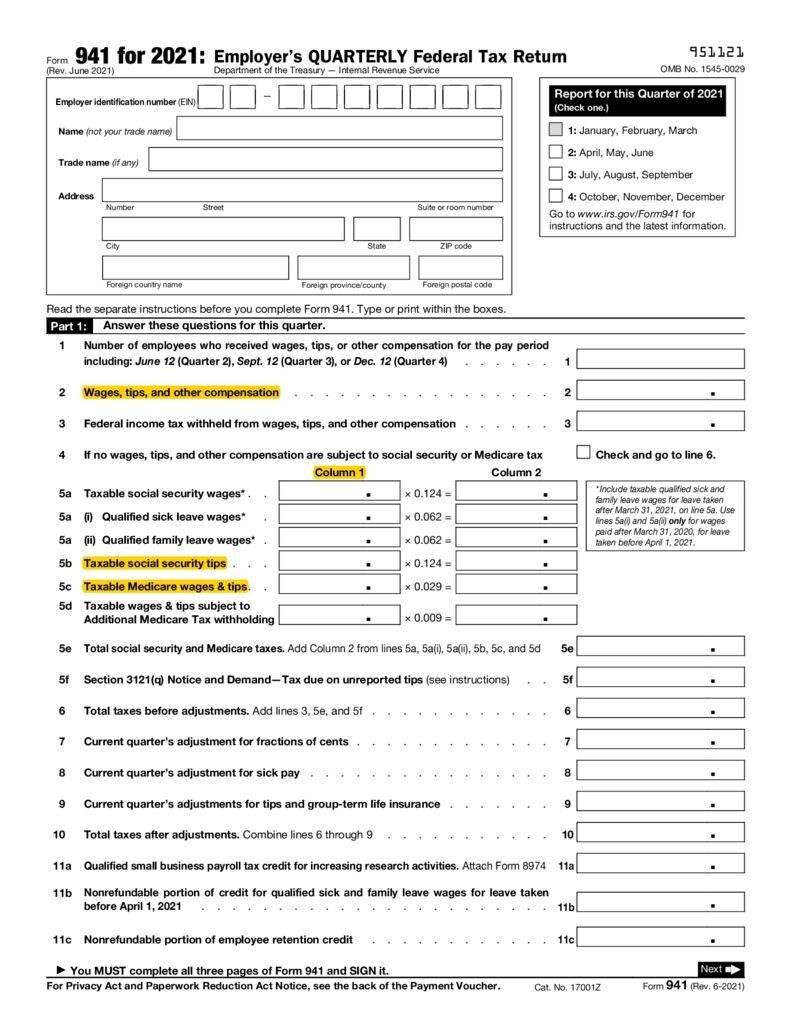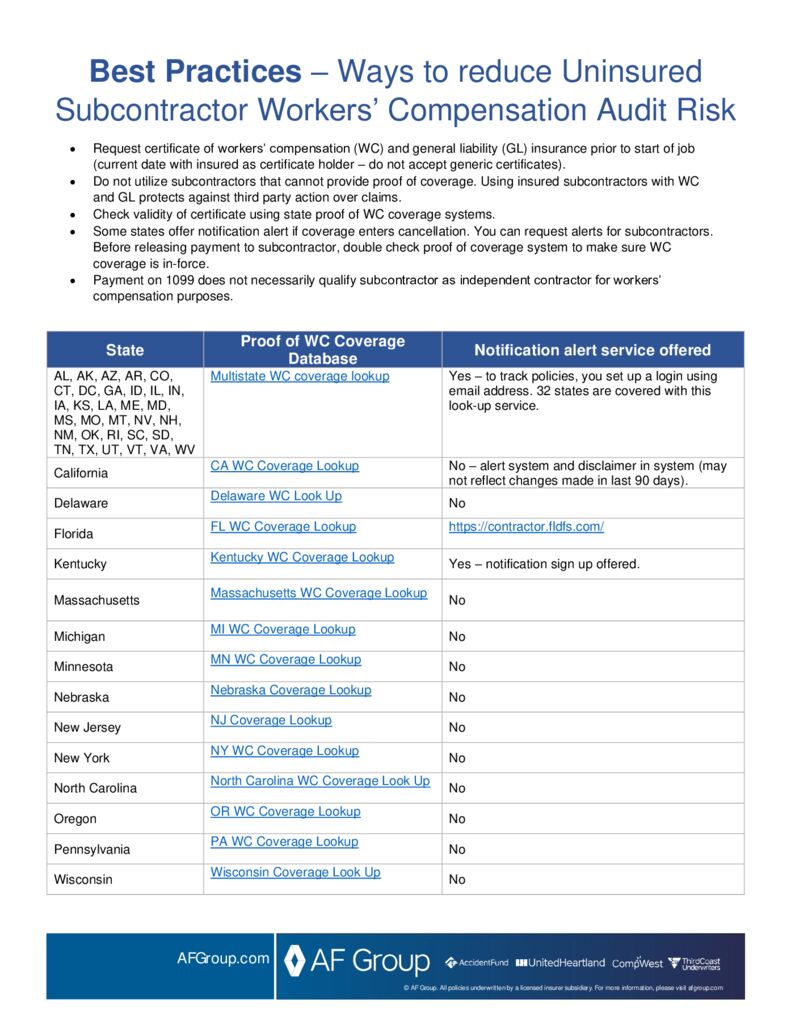Frequently Asked Questions
Services
Frequently Asked Questions
Why do we need a premium audit?
A premium audit is conducted at the expiration of the policy period to determine actual exposures and classifications for the coverage provided.
The premium on your policy is based on estimated payrolls. The final premium will be determined after the audit is completed using actual payroll exposures. The result may be a return premium or an additional premium.
What is the definition of principals?
- Corporation – President, Vice President, Secretary, Treasurer or any other officer appointed in accordance with the charter, resolutions, meeting minutes or bylaws of such entity.
- Limited Liability Company (LLC) – Managing Members
- Partnership – Partners
- Sole Proprietors – Owners and spouse
Why was I charged an audit noncompliance charge (ANC)?
- To comply with state bureaus and the National Council on Compensation (NCCI), AF Group applies an audit noncompliance charge if a policyholder does not comply with the request for a premium audit. Please refer to your policy for details regarding the ANC Charge. The ANC charge varies by state.
- ANC charges may be removed once complete audit information is received.
What is considered as gross wages?
Total pay received by all employees (including active as well as terminated employees for the policy period) for all covered entities Including, but not limited to bonuses, holiday, vacation and sick pay, as well as extra pay for overtime and pre-tax deductions for health insurance, 401k and other cafeteria plans.
Note: Workers’ compensation is state-specific and we apply rules per the individual state requirements.
Can overtime be excluded from wages for premium computation purposes?
Gross overtime must be reported. The appropriate premium credit (1/3 for time and a half or 1/2 for double-time) will be calculated and applied at time of audit.
As an excluded officer/partner/owner, do I need to report gross wages?
Yes, total gross wages need to be reported for all employees (including excluded individuals).
What records are required for verification purposes?
Federal 941s and State Unemployment tax reports (if more than one entity is covered, please provide the applicable tax documents for each entity). If your company is not required to file 941s, we ask that you attach a copy of your latest Federal Tax Return Form 1040C, 1065, 943, 1120, payroll report or check register, profit & loss statement, general ledger report.
Examples of requested forms:
Can wages be split between classifications?
Wages cannot be split with standard exception classes (codes 8810, 8742 or 7380). Wages can be split in certain circumstances between basic classifications and if proper payroll documentation is provided (percentage splits are not accepted). Please contact your agent or our office for specific details.
Why would you need a general ledger, check register and/or P&L?
These are used to verify the use of subcontractor/cash labor.
Why would questions about independent contractors be part of the workers’ compensation audit?
Contractors must meet certain criteria to be considered independent. The auditor will ask a series of questions about the method and frequency of payment(s), the relative nature of the work and the amount of direction and control to determine if the subcontractor is, in fact, independent. If the subcontractor is not deemed independent based on the responses, the contractor will be included in the audit as an uninsured subcontractor. Many states have additional rules regarding independent contractors. The auditor will follow these rules when determining if a contractor will be included in the exposure.
If the state does not require a sole proprietor, partner or member to carry workers’ compensation coverage, why do they have to be covered under the AF Group policy?
If the subcontractor has no employees, some states do not require workers’ compensation coverage. However, per manual rules, determination will be made if an employer-employee relationship exists between the insured and subcontractor. If an employer-employee relationship exists, AF Group may be liable for any claims the individual may file. Each state has different requirements to determine independent status. A general liability insurance certificate does not replace workers’ compensation coverage.
Why is a subcontractor included on my workers’ compensation audit when a general liability Certificate of Insurance was provided?
What is the definition of “Clerical Office Employee”?
Per manual definition, the duties of a clerical office employee include creating or maintaining financial or other employer records, handling correspondence, computer composition, technical drafting and telephone duties, including sales by phone. A clerical office is a work area physically separated by floors, walls, partitions, counters or other barriers and distinct from all other work areas and hazards found on the employer’s premise(s).
An employee who has clerical duties but is also exposed to the hazards of the business, would not be considered a clerical employee. A few examples would be a manager who has a desk on the manufacturing floor, a clerical employee who works in a store to cover breaks or lunches, an office employee who does shipping and receiving work.
I did not renew my policy, why do I need to do the audit?
An audit is a condition of the policy and is performed at the expiration or cancelation date of your policy to determine actual exposures.
If my audit is not correct how can I dispute it?
If you disagree with the audit, you can complete a dispute form by clicking here. Please be sure to provide supporting documentation.
What exception rules apply to California?
WCIRB requires any policy with an earned premium of $10,500 or more to be physically audited.
- Salary Reduction and Cafeteria Benefit Plans: A plan qualified under Section 125 of the Internal Revenue Code is excluded, provided the employer’s books and records are maintained to show separately such amounts by employee and in summary by type of operation performed.
- Certain business owners who meet the statutory requirements may elect to exclude themselves from workers’ compensation insurance coverage, including officers and members of boards of directors of certain types of corporations, owners of professional corporations, general partners and managing members of limited liability companies.
- California Labor Code (Sections 3351 and 3352) governs the exclusion of these individuals. Effective July 1, 2018, the individuals who may elect to exclude themselves from coverage if they meet the requirements for exclusion. Dave suggests either a link to SB 189 and a referral to their agent (BDC) for addt’l questions
- Guidelines for clerical and outside sales (add a link)
- California Assembly Bill No. 5 (Independent Contractors)
- AB 5 creates a presumption that an entity’s workers are employees unless the worker meets three conditions, known as the “ABC Test.” Specifically, for a worker to be considered an independent contractor, the hiring entity must demonstrate that all the following conditions are satisfied:
- The person is free from the control and direction of the hiring entity in connection with the performance of the work, both under the contract for the performance of the work and in fact.
- The person performs work that is outside the usual course of the hiring entity’s business.
- The person is customarily engaged in an independently established trade, occupation, or business of the same nature as that involved in the work performed.
- Dual Wage
- In California, several construction and erection operations are divided into two separate classifications based on the hourly wage of the employees and each of these classifications has a different advisory pure premium rate. For each of these classification pairs, a specific hourly wage threshold is used to determine whether the payroll and claims for an employee are assigned to the “high wage” or “low wage” classification.
- Records required at time of audit include: Timecards/time sheets (showing daily start and stop times and total hours worked each day for each type of operation performed) for each employee.



